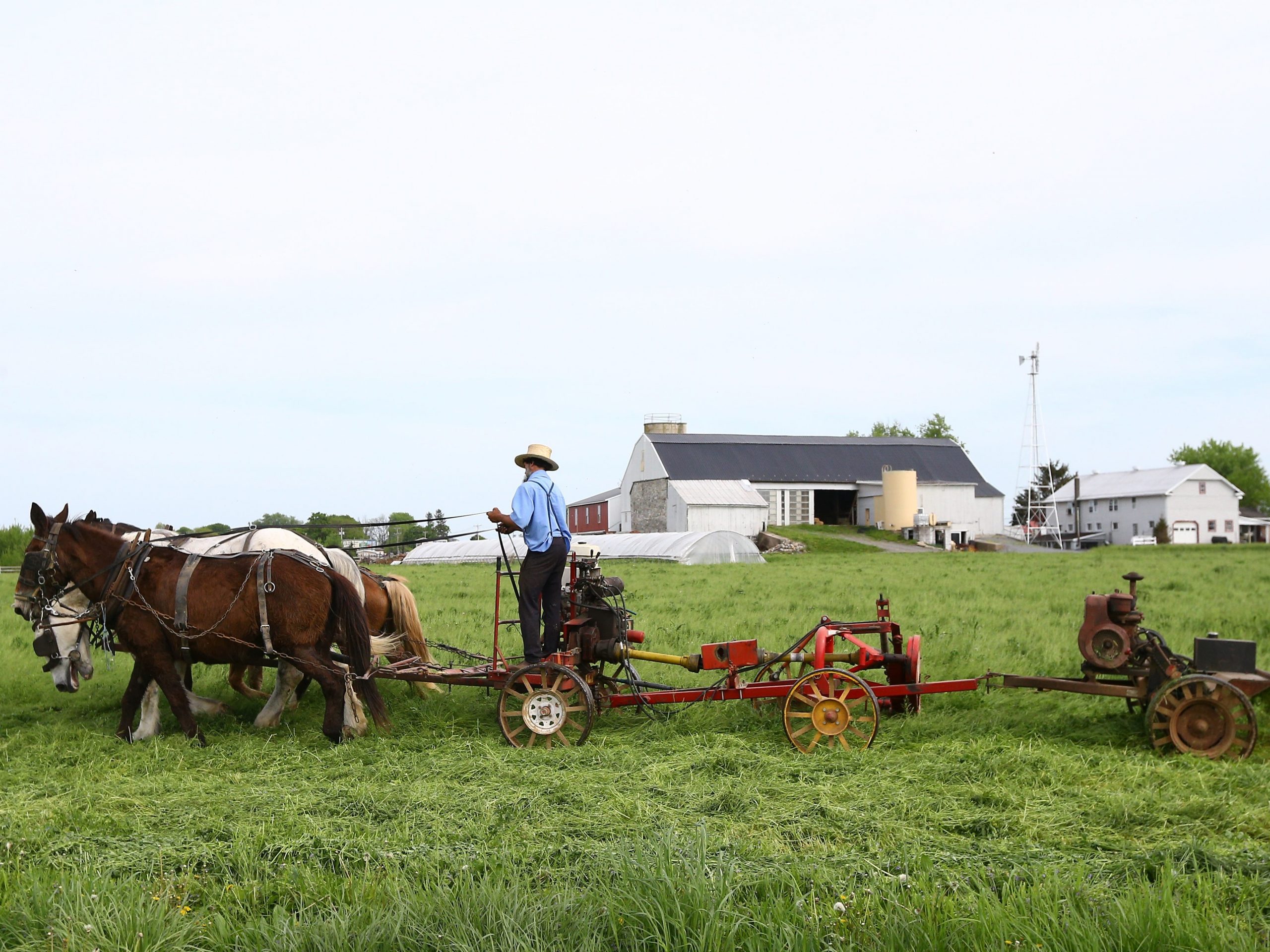
Volkan Furuncu/Anadolu Agency/Getty Images
- In Holmes County, Ohio – which has the highest concentration of Amish in the US – only 14% of citizens are fully vaccinated.
- Holmes County speaks to a larger vaccine hesitancy among the country's 350,000 Amish.
- A lack of information and a casual attitude toward the virus, along with a faith-based approach to healing, have discouraged the Amish from getting vaccinated.
- Visit Insider's homepage for more stories.
In Holmes County, Ohio – which has the highest concentration of Amish in the US – only 14% of its 44,000 residents are fully vaccinated against COVID-19, according to a New York Times vaccination tracker.
In neighboring Indiana, around 25,000 Amish live in the town of Topeka. Trevor Thain, the owner of the local pharmacy Topeka Pharmacy, told the Associated Press that his business had vaccinated 4,200 people. However, he said only around 20 of them were Amish.
Around 2/3 of the country's 350,000 Amish live in Indiana, Ohio, and Pennsylvania. Authorities in those states are struggling to convince these communities to get vaccinated.
Amish don't necessarily outright reject the idea of vaccination, but they tend to take a faith-based approach to healing. They put their trust instead in God, church leaders, and folk remedies.
Even when some from the community choose to get vaccinated, it's a hushed-up affair.
Marcus Yoder, a Holmes County resident who was born Amish and is now a Mennonite, told NPR in April that the few Amish he knew who were getting vaccinated kept it to themselves.
Yoder said that he ran into several Amish people he knew when getting vaccinated.
"We all kind of looked at each other and smiled underneath our masks and assumed that we wouldn't say that we saw them," he told NPR.
Aside from religious beliefs, the communities tend not to be overly concerned with COVID, West Virginia University researcher Rachel Stein told WVU Today.
"There's been a lot of minimizing of the severity of COVID," Stein told the outlet. "There's a perception that COVID is like the flu. If people get sick, then people get sick and will eventually get over it."
Many Amish communities also mistakenly believe they've reached herd immunity since so many residents have already gotten sick. They believe vaccinations are unnecessary.
"That's the number one reason we hear," Alice Yoder, executive director of community health at Penn Medicine Lancaster General Health, in Lancaster, Pennsylvania, told the AP. Around 40,000 Amish live in the Lancaster area.
Marcus Yoder believes vaccine hesitation comes from a basic lack of information about the virus and a blinkered view of the outside world.
"They're saying, 'Well, it didn't affect me that much. Look at all these old people who survived,'" he told NPR.
"I think we're going to see some more cases in our community, unfortunately, because of this," he continued. "There simply is a lot of COVID news fatigue. They simply do not want to hear about it, and that's really unfortunate."
Dit artikel is oorspronkelijk verschenen op z24.nl
